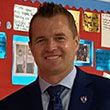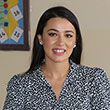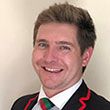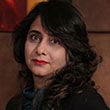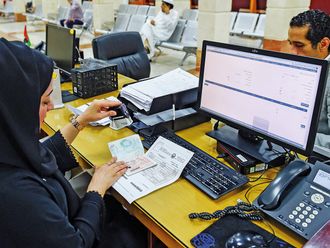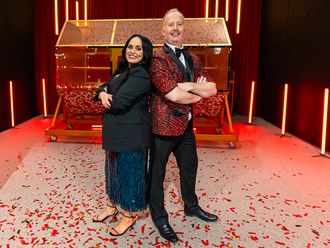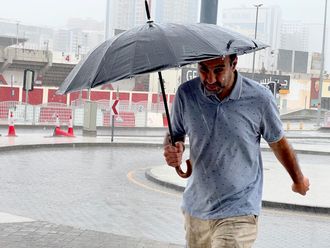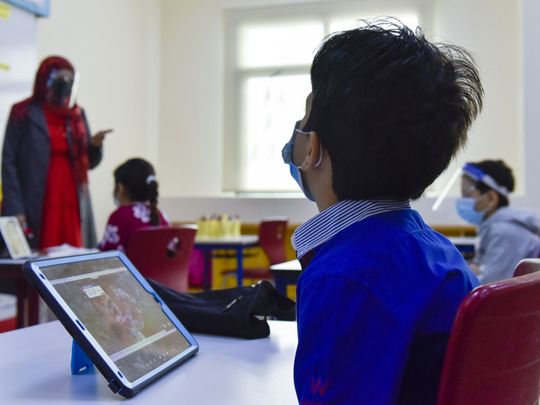
Dubai: Teachers should go beyond academics to also teach students life skills and well-being practices, educators in the UAE said on World Teachers’ Day on Monday, also known as International Teachers’ Day.
It has been an especially challenging year for teachers as they had to adapt to distance teaching, with many of them helping their own children with online classes at the same time, because of the disruption from the COVID-19 pandemic. There are over 70,000 teachers in the UAE’s public and private schools, many of whom had no prior experience in teaching online, like their counterparts globally.
Teachers told Gulf News they have a moral responsibility to go beyond the syllabus, helping students cope with online or blended learning, as well as inspiring them to reach their full potential academically and socially in these unprecedented times. As the world marks this Teachers’ Day with virtual celebrations, tributes have been coming in from students and school leaders.
Andreas Swoboda, principal of Uptown International School, Dubai, said teachers deserve the “utmost respect” in society, especially these days as the world grapples with the COVID-19 crisis. “Teachers are the engine of education. They have risen to the challenge of multitasking teaching, delivering simultaneously face-to-face and distance learning with inspiration and innovation. They demonstrate ultimate care and commitment to their students and their learning journeys; the progress and welfare of their children are always paramount in their planning. Together with our health workers, they deserve society’s utmost respect and admiration for their front-line role during these unprecedented and challenging times,” he added.
Simon Crane, Head Master, Brighton College Dubai, said the school’s students made a “gratitude wall” to thank their teachers. “All our teachers have been incredible and gone above and beyond to help our students during these unprecedented times. As head master of Brighton College Dubai, I am so thankful for their support, commitment and passion as are the pupils who have created a dedicated gratitude wall to the teachers and have posted notes of thanks and appreciation. Not a day goes by where we don’t pass thanks onto our amazing community of teachers …” he added.
On the occasion, schoolteachers in the UAE shared aspects from their lives, narrating the challenges and joys they have experienced as educators.
Tammy Elimlahi, assistant head of primary and Year 4 teacher, GEMS Cambridge International School — Abu Dhabi.
There was a time when Elimlahi, as a young student, had almost stopped believing in herself. “I came from a low socioeconomic background. I was never particularly gifted and learning wasn’t always easy for me. I was probably one of many children who would have easily fallen through the net. A handful of exceptional teachers made the difference for me. They kept me going, telling me I could leave school with good grades, I could go to university and have a career,” said Elimlahi.
And that’s exactly what happened. In 2012, she graduated from the University of Greenwich with a bachelor of arts honours degree in primary education with ‘Qualified Teacher Status’; the first in her family to attend university. She then began teaching in an inner-city school in London where she thrived in building close relationships while inspiring students through her teaching. Elimlahi has been with her Abu Dhabi school for six years now.
As a student, her interaction with caring teachers had inspired her to become a teacher, which she said is a profession where every student’s strengths, weakness and interests should be paid close attention to. “Teaching is not about having a syllabus and teaching that to however many faces you have in front of you. We’re called teachers but there’s so much more than ‘teaching’ that we do … Also I’ve been fortunate enough to be offered lots of opportunity by my school and lots of recognition as well,” Elimlahi said.
Annalise McNeill, grade five teacher, Uptown International School, Dubai
McNeill, who has taught pretty much every subject in her 12-year career, has a certain philosophy to teaching — she believes teachers should not stop at academics, but “raise good little humans, responsible citizens and agents of change”.
She devotes part of the class time for inspirational true stories and real-world issues. For example, she read out to her students the story of Malala Yousafzai, a young Pakistani activist for girls’ education and the youngest Nobel laureate. “The students were so captivated by Malala’s story. We picked out this quote of hers, ‘One child, one teacher, one book, one pen can change the world’, and put it on the wall, really big. And every day they come in and they get inspired by this quote,” said McNeill. “It’s important that children know that they can have a huge impact on the world … A lot of my lessons have a huge discussion component, getting students’ ideas on the real-world applications of what we’re learning in school. I’m always getting them to think outside of the classroom walls.”
At school, McNeill also teaches meditation techniques to give children “an idea of appropriate, essential well-being as well, and they absolutely love it. Especially now, with COVID-19, children are going through a lot of emotion, for example not being able to have the same interaction with their peers as before”. As a child, McNeill never wanted to be anything but a teacher. “I used to teach my younger brother how to read and write, I would have these little classes with him. From the very beginning, I felt like I was a born teacher.”
Jacobus De Wit, Year 7 and 8 maths teacher, The Cambridge High School — Abu Dhabi
De Wit had it rough as a three-year-old boy who had to have one kidney removed as a result of cancer. He sometimes shares his inspirational story with his students to show them “anything is possible”. But “the most important thing” for him in the classroom is to remove the fear of making mistakes.
“Students must be comfortable in making mistakes and realise that in making mistakes, they will learn something and be a better person at the end of the day, not just academically, but in life. That’s the baseline for me, that if the students can be themselves and know that they are allowed to make mistakes, they enjoy school so much more. And we know that if you enjoy something, you just tend to be better at it,” De Wit said.
He uses humour in his lessons and takes interest in what his students like. “If you show interest in their life, they respect you so much more.” De Wit starts the new academic year with “an honest message” to his maths students. “Look, I get it, some of you may not like maths, some of you may be better at arts. But I’m going to make sure you enjoy it,” he said. De Wit, whose mother is also a teacher, said from a young age “teaching was the obvious choice for me … There is not a single day in teaching that’s the same, you have to be open for anything and that’s the great thing about it”.
Anjum Ali, head of KG, Global Indian International School, Dubai
When schools in the UAE closed in March because of the pandemic, it was up to Ali to oversee that the KG section of her school moved online in record time. “I didn’t want there to be a gap in children’s learning. We had to take very quick steps, even though this was uncharted territory,” she said.
She guided teachers in distance teaching, who improvised from home when they didn’t have resources. “We used whatever was available at home, because we couldn’t access the school during the movement restrictions. We taught counting using macaroni, Lego blocks, we had to be creative. The children’s parents would take pictures of their worksheets and send it to us; we would comment on the pictures, add smileys and stars, and send them back,” Ali said.
It wasn’t just creativity that shone through; this was a time to be fully transparent, she added. “We had never thought these times would come, none of us were trained for something like this. Transparency helped all of us. We told parents, ‘this is the situation’. Many parents were not used to the technology of distance learning, they had to learn about the platforms, just like many teachers.” The hard work paid off — the children’s learning was not disrupted, she added. In fact, they had both teachers and parents monitoring their progress closely during the distance learning period, Ali said. “Of course, nothing can replace a school, but I believe we did a good job with online classes.”
Ali started teaching, professionally, two decades ago in Mumbai, India. But she has been ‘a teacher’ ever since she can remember, ever since she used to help other children learn while she was herself a child.


